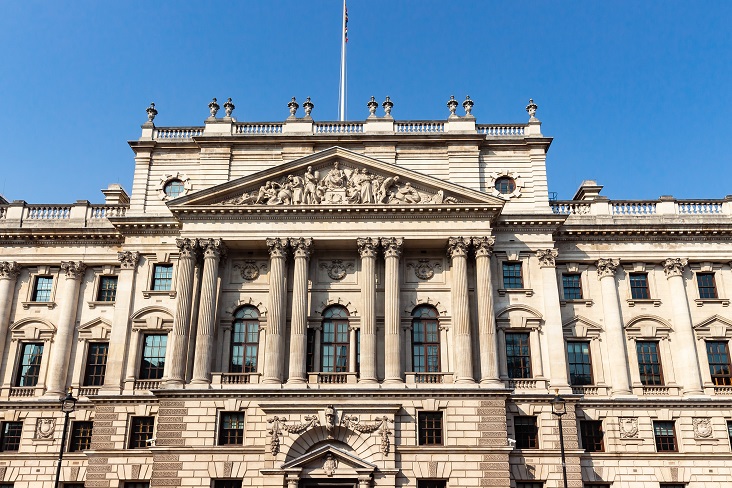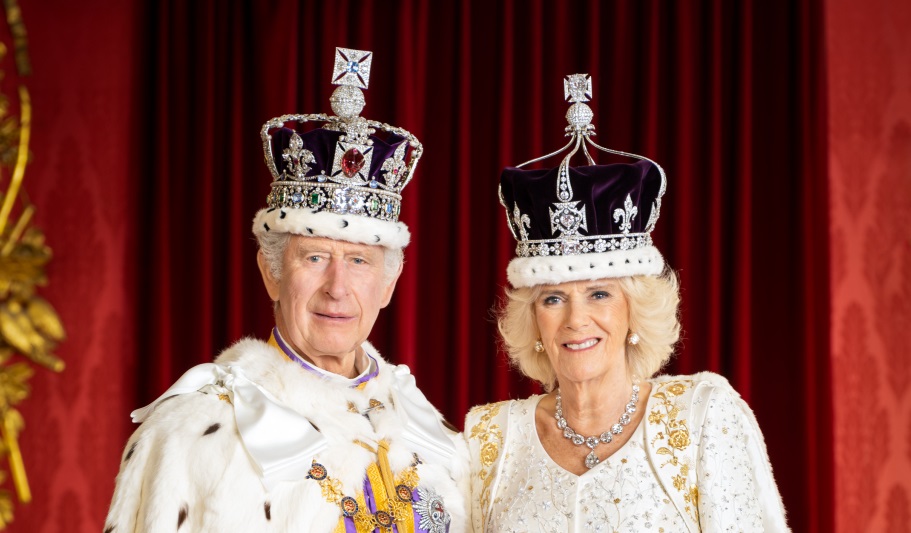Before anything else, we hope you had a really Happy Coronation Weekend! Well done your Majesties!
So, US growth is lower than expected, unemployment is rising in the UK and the US as job vacancies are falling and that is seen as good news so the markets react without great negativity… why?
It may sound bizarre but it suggests central banks’ action on inflation is beginning to bite and the slow-down will thus see inflation falling quite dramatically. Indeed, commodity prices are soft – oil has also come away significantly after its recent rise following Opec+’s production cut. Of course this all also suggests that extra interest rate rises are less likely (or the extent of those anticipated) and the markets see that as positive (well, despite the latest wobbles in regional US banks’ share prices, bigger bank shares don’t but then, they are still far too cheap already and benefiting colossally by the rate rises already).
In fact there is considerable ‘ripping-off’ already; bank base rate here is 4.25% but what’s the best instant access return you can see – 1%? Don’t forget Bank Base Rate is not what they charge borrowers – they charge a margin on top and those have been ratcheting-up these last few years. Banks are also fearful as instant deposits can be withdrawn at the drop of a hat (like at SVB which lost 25% of its deposits in one day). If the banks aren’t careful and remain too greedy and are not more generous, they will push cash savers to other safe options like Moneymarket Funds, etc and then that money won’t come back…
Cost of living crisis and luxury goods

It is always bemusing when the media is full of the struggle so many face and yet at the same time, the cash to acquire luxury goods seems to know no bounds. French firm LVMH saw its market capitalisation hit $0.5trillion last month, helping to propel the French stock market above the British one and its chief executive into the ‘richest man in the world’ stakes. These companies don’t only sell to the super-rich but there are countless more ‘normal’ people who can or choose to afford their products and services and no longer see these as discretionary purchases but part of the necessities of their lives.
Of course, these too may be the same people on strike complaining their incomes have not kept pace with inflation, though as I have shared on several occasions, average disposable household incomes last year were the highest they have ever been, inflation adjusted (and primarily because ‘we’ don’t stand still – we progress – a typical trainee nurse or trainee junior doctor doesn’t remain on starting pay for long for example). Anyway, I fear these luxury goods’ cos are over-priced so we don’t hold them nor other fashion giants like L’Oreal and Hermès. A rerating will see the value of the French market slip too.
Christians Against Poverty

We are pleased to be supporting this excellent Charity’s local work. If you can help, please do contact them or support them financially:- Free debt service needs more North Devon volunteers due to demand
North Devon Business Awards

Very happy to be sponsoring these awards again this year – well done to all the contenders, as being selected is an achievement in itself! North Devon businesses prove they’re tougher than pandemic, war, and rising fuel prices
Currency rates and your investment returns

Since the low in September, Sterling has recovered 17% against the US Dollar. Have you considered how currency rates affect your investments? We had been selling-down some of our Dollar assets but not enough (that’s greed talking now!) but many investors in mainstream funds don’t realise that maybe the ‘good results’ they saw the last few years were swollen by the currency exchange and that could just as easily correct again and they will wonder why they lose, especially if the underlying stockmarket seems higher?
Why the Dollar is so important is that US shares are two-thirds of all shares so all those people with some form of global tracker and mainstream funds are impacted… does that include you? We do take a currency view and acquire hedged funds if we believe there is a big risk we could lose on the currency. If we have an opposite view, we don’t but we may have some other assets which counterbalance those exposures, as a form of protection.
Popular trusts
 Has Scottish Mortgage bottomed at £6.13? Its long-suffering shareholders might like to think so, but what is going to turn things upwards? It’s a long way down from its 4/11/21 peak of £15.44 when so many people were keen to buy it – advisers and investors alike. Sadly it epitomised the exact opposite calls we were making at the time – steer away from excessively priced ‘tech’. That’s a 60% fall in 18 months, a fall we missed in total and no, we’re not buyers now but maybe at some stage with a deeper discount to the underlying assets, less reliance on unquoted tech assets and so on but that’s not for now. Especially when there are so many other attractive opportunities without the pressures of constant sales upon the parent group from disgruntled investors, which mean they have to keep selling-down assets to meet redemptions and that affects prices across the board when they have the ‘same’ holdings across their fund ranges.
Has Scottish Mortgage bottomed at £6.13? Its long-suffering shareholders might like to think so, but what is going to turn things upwards? It’s a long way down from its 4/11/21 peak of £15.44 when so many people were keen to buy it – advisers and investors alike. Sadly it epitomised the exact opposite calls we were making at the time – steer away from excessively priced ‘tech’. That’s a 60% fall in 18 months, a fall we missed in total and no, we’re not buyers now but maybe at some stage with a deeper discount to the underlying assets, less reliance on unquoted tech assets and so on but that’s not for now. Especially when there are so many other attractive opportunities without the pressures of constant sales upon the parent group from disgruntled investors, which mean they have to keep selling-down assets to meet redemptions and that affects prices across the board when they have the ‘same’ holdings across their fund ranges.
Treasury excess

Remember I wrote about the profits the Treasury received from the Bank of England from its Quantitative Easing programme as interest rates fell? Well, we hear now that the Treasury will have to pay £100billion to the Bank to cover the losses since interest rates started to increase – ouch. That may be ‘only’ £30billion a year for the next few years but there it is. Just imagine if the Treasury had followed the Austrians and floated a £100billion 100 Year Bond at the lowest point instead so it would be tied to paying a paltry rate of interest all that time…
Woodford – a theme

Have you been encouraged to invest in the latest ‘trend’ and paid the price? Was the last one US Tech? Neil Woodford launched his ‘Patient Capital Trust’ in 2015 and raised what was then the biggest ever sum from investors for the concept of new stage development companies in healthcare, especially. Schroders took the helm in 2019 but still the Trust languishes in the depths, having lost those inaugural investors 85% of their stake and of course, don’t forget the ‘opportunity cost’ of what they could have earnt somewhere else instead. I am sorry if you were one of those buying the Woodford dream – we weren’t for any of our clients and another day maybe I’ll say why not (though the ‘why nots’ for us on many of today’s exciting opportunities are perhaps more important).
However, this message isn’t about that – it is more a case of what exciting new theme or star manager are you following who could easily become the next investment ‘like this’? Yes, I know, we all enjoy the excitement of chasing what seems an assured winning sector, investment guru or manager/fund but is that wise? There are lots of stories which suggest it isn’t – yes, it may be easy for a firm to sell a good past story to eager investors wanting a buzz (and it seems easier to buy a good story than one with a bad recent past) but as we keep saying, it is the future which is important – not the past.
Now if we were to say we have a stake in the Schroders Capital Innovation Trust now (its new name), we can’t be accused of buying into the trend… nor is it an easy ‘sell’ to investors who have seen the share price fall… and fall… so why are we holders of it? Well, there is a chunky discount to the underlying asset value (over 40%) which gives us some comfort but within that, the managers have kitchen-sinked pretty much everything they could so there is plenty of chance for surprises on the upside.
However, the usual caveats apply – this is not a recommendation and for our client exposure, it remains a small holding against our total assets. And if the company closes-down and can sell its assets at the present values, we’d enjoy an instant 83% gain on its present share price so fair reason for our exposure despite the ‘ifs’. That would be an extra bonus on what the underlying assets will be doing in the meantime regardless, up or down.
My best wishes
Philip J Milton DipFS CFPCM Chartered MCSI FPFS FCIB
Chartered Wealth Manager
Fellow Of The Personal Finance Society, Fellow Of The Chartered Institute





